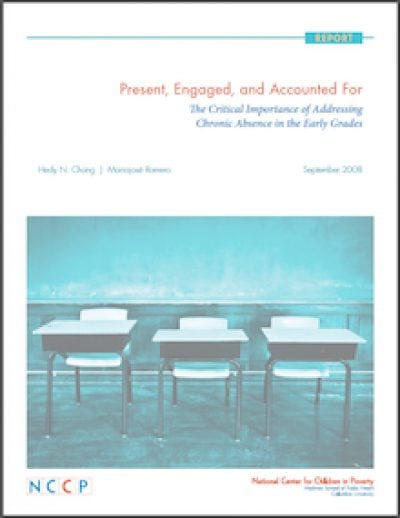Terminology Check: Chronic Early Absence
Chronic early absence, as defined by the authors of this report, is when a child misses 10% or more of a school year while enrolled in a K-3 grade level. This calculation takes all of student’s absences — both excused and unexcused — into account.






